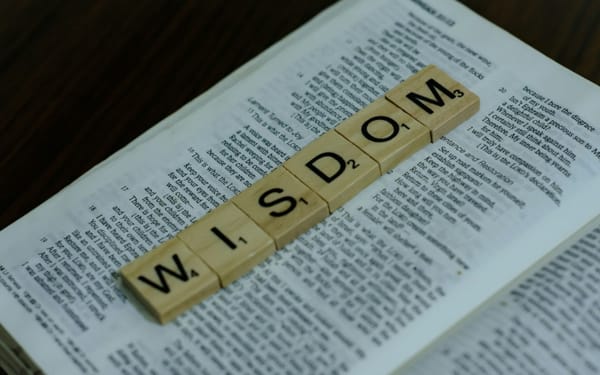A Bad Hunt and A Bowl of Soup: Why An Eternal Perspective Matters

It is late afternoon and the sun is sinking lower and casting long shadows down the draws and crevices along the Owyhee mountains. Out in the valley, sunlight still covers everything, but down the steep slope below me, darkness has already begun to stretch out its fingers and get a grip. The temperature is dropping as I make my way through some scrub and over deadfalls and broken branches, across a narrow ridge, winding my way through rocks and trees to reach my spot. I need to be in place as the day ends, when the slopes will come alive with small dark figures, slowly working their way back and forth after emerging from their hideaways.
It’s cold and the wind is rushing through the open spaces and across the exposed ridge where I am hunkered down between sandstone boulders. I reach down and pull my gloves, undershirt, and jacket out of the pack and layer up after the brisk hike.
I am pieced together in a patchwork of borrowed gear, old tennis shoes, and child-like anticipation. I love it out here. I am not a hunter. I don’t know what I am doing, but I love it. I sit and glass the slopes with the scope and try to keep the wind from making my eyes tear up.
Hunting has changed significantly through the ages. What started as our subsistence has become our pastime. I am sure those who hunt as though it is an extension of their religion would take umbrage with this, but one of the many benefits of a modernised and industrialized society is that in a couple of hours when I hike down empty-handed, my family will still eat. It is not the result I was looking for, but then again, maybe I would have put more into it if my family’s very survival was on the line.
Esau had a similar day to mine. He had been out for hours. He had used all of his skill and accumulated wisdom and had come home empty-handed. Esau had a day similar to mine with one notable exception; he didn’t have a full fridge when he entered his tent. He was hungry and no doubt just a little irritable. He was a man known for his prowess in the hunt and he apparently did not come home often without food. The difference between Esau’s situation and mine is not trivial. There was no doubt real desperation for Esau.
Jacob capitalized on Esau’s misfortune. He had something that in that moment, Esau thought he literally could not live without and he struck a bargain. He essentially sold his future for a bowl of soup. He couldn’t see past the temporal and as a result, his life became a negative footnote in history. In fairness, I think there is more to Esau’s decision than the bowl of soup. Scripture says that he despised his birthright and perhaps it had always been apparent to Jacob that Esau didn’t want the responsibility that came with it. Either way, Esau lacked an eternal perspective.
Without an eternal perspective, it is easy to trade the temporal for the eternal. Our myopia in relation to the soup obscures the birthright. We cannot see the forest for the trees. Look at Esau’s story in juxtaposition to the pearl of great price (Matthew 13). A man sells everything to buy a field because he found something precious in it. This man strategically suffers a loss so that he can have the greater gain. Esau, through lack of perspective and perhaps a dereliction of duty, suffered a gain for a far greater loss.
This started me thinking about where my aim has been. Am I so caught up in the temporal-the soup-that I am systematically trading my birthright for the better car, the bigger house, or social standing?
For some, it could feel like a literal bowl of soup. They are just surviving and esoteric talk of eternity seems pointless. Clothes on our back and food in our bellies matter. Our family’s welfare matters, but there is an order to these things. Christ left us the order of importance when He said, “But seek first the kingdom of God and his righteousness, and all these things will be added to you.” Matthew 6:33.
Life is a vapor and what I do between the dashes matters. I need to keep my focus on the birthright and the blessing and not on the soup.





